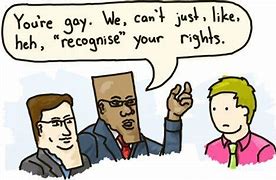Below is a review of the posts (on Facebook, LinkedIn, and Twitter) from the past week. You can check out the full posts by clicking on the links.

The post on Sunday 1/8/2023 was about guns in the work-place: what has changed and what can employers expect? You may know that on June 23rd the U.S. Supreme Court issued a 6–3 decision in New York State Rifle & Pistol Associa-tion v. Bruen that expanded the right of Americans to bear arms as guaranteed by the Second Amendment of the U.S. Constitution. Well, what the decision really did is to limit a state’s ability to restrict citizens’ right to carry fire-arms publicly for their self-defense.
The Bruen decision does not explicitly address the workplace or stop businesses from enforcing their own restrictions on the possession and carrying of firearms at their facilities. But how might the decision affect guns in workplaces? See the post (and keep reading). The Bruen decision stemmed from a challenge by two citizens who were denied licenses to publicly carry handguns under New York’s firearms statute (detailed in the post).The two citizens’ license applications were rejected because they did not meet the statutory requirements (as also detailed in the post).
The federal appellate court dismissed of the citizens’ case and then the Supreme Court granted certiorari to determine if firearms statutes like those in New York, California, the District of Columbia, Hawaii, Maryland, Massachusetts, and New Jersey are consti-tutional under the Second and Fourteenth Amendments. The Court’s majority opinion focused on the text and historical interpretation of the Second Amendment. The majority determinations (in the post) led to the conclusion that no historical prohi-bition was similar to or supportive of New York’s restrictive licensing requirements.
The Bruen decision gives some useful insight into the current Court’s stance on gun control. First, it distinguishes the 43 “shall issue” states from the six states plus the District of Columbia that are “may issue” states .What those things mean is described in the post. And what does that have to do with the Bruen decision? Yep, see the post. And because many workplace-based restrictions originate from the general firearms laws of the state, employers in “may issue” states now may want to revisit their policies to ensure that their viability is not reliant upon unconstitutional statutes. Let’s delve into this more from the employer’s viewpoint.
The Second Amendment does not guarantee the right of private or public employees to carry or possess firearms at work. There are no federal laws specifically addressing firearms in the workplace (though OSHA does come into play as noted in the post). Therefore workplace restrictions on firearms are generally covered by state laws. The states are almost evenly divided among those with some form of firearms law specific to workplaces and those that have none. The states with restrictions generally include those items listed in the post. But there are also some differences in those restrictions as also listed in the post. These differences complicate employers’ efforts to develop and enforce firearms policies, especially for multistate employers.
A starting point for a policy might be as identified in the post. And recognizing that safety is often the foremost consideration for employers, they may want policies that define who, when, and where firearms are allowed, if at all. Will this work for a multistate employer? See the post.
Ever-changing laws also present difficulties in cultivating “future-proof” policies. As Bruen has shown, overly restrictive gun regulation is on the court’s radar, and the court’s rulings may have a trickle-down effect on guns in the workplace.
TAKEAWAY: Employers with outright firearms bans at their workplaces should check applicable state laws to ensure their policies are legally compliant and be ready to make revisions if the laws change.

The post on Monday 1/9/2023 was about sexual harassment at the holiday party – potential fallout. Take the time now to think about this before 2023 parties.
One of if not the most important thing or employees to remember is that just because office holiday parties take place after hours does not mean they are totally separate from employment. Also, dirty dancing can lead to no paycheck. And finally, before sending risqué text messages to colleagues who were at the party while on your way home, think of Joe’s story.
Joe was the branch manager in a small company. When he arrived at the holiday party, he made a joke to somebody who commented that his hair was still wet. He explained that when a young female worker and her husband showed up to give him a lift to the party he had to rush out of the shower and was still a bit late. He had known that he was going to be late and had rushed home and jumped in the shower. He joked that the female worker who picked him up was the youngest person to get his clothes off that fast in a long time. And there was more – see the post.
After dinner at a restaurant, they all went bowling. Joe was on the same team with this young female worker and her husband. When she was about to bowl, she commented that she didn’t think she could bowl at all. Her husband shouted that with a behind like hers she could do anything. And Joe’s contribution? See the post.
The young worker eventually complained but made it clear to management that she didn’t want Joe fired and didn’t want an apology. What she did want is noted in the post. Unfortunately, the employer had recently adopted a new sexual harassment policy so management was gung-ho to put it to use – and Joe ended up being fired.
Joe sued. What was the ruling? See the post. Even though Joe won, he was still out of a job.
So why are we mentioning this? Because employers need to ensure that nobody should be made to feel uncomfortable or harassed in the work environment. After a few drinks at a party, either of two things often can and do happen; see the post. Even if the employment relationship survives, it could be permanently damaged which isn’t good for employer or employee.
TAKEAWAY: Employees can have fun at company holiday parties but must remember not to do or say anything that might come back to bite them when the employer does what it legally should do.

The post on Tuesday 1/10/2023 showed us that after no pickups in weeks, trash piles up on HOA streets, attracting wildlife. When a tv news team drove through the large community, there were bags of trash lying out everywhere. Residents said no one had picked up trash in the community since late November. Late November! And what types of wildlife did the news crew see? See the post. And as a result, many bags of trash had holes in them.
Residents who pay HOA fees are growing increasingly frustrated by the situation, which they describe as unsanitary and ugly. Residents, community messages, and the HOA website explain what happened (as noted in the post) after owner complaints of inconsistent service. So then in early November the HOA board hired a company called Haulin’ Trash, which picked up trash in the community for a short time before filing for bankruptcy. After that, the HOA has struggled to hire anyone else; one community message included a complaint as to why (yes, see the post).
When Haulin’ Trash went out of business, it affected communities too – the county estimates about 3000 people in all lost their trash service. In order to help, the county voted to waive fees for affected residents who bring their trash to one of the noted county facilities along with the documentation noted in the post. But one resident told the news crew that she and others didn’t want to take their trash to the county facilities in their cars; why? See the post (and live their pain). Residents hope the HOA is able to hire a new company soon.
TAKEAWAY: Associations cannot control the actions of their vendors, but it is good to have back-up plans in place in case vendors fail to perform.

The post on Wednesday 1/11/2023 told us that Pennsylvania expands scope of discrimination protections: what employees and employers need to know. This is not via a new law, but rather through the regulatory process. Protections against discrimination in employment, education, public accommodations and housing are included. So how did this come about?
On December 8, 2022, the Independent Regulatory Review Commis-sion approved regulations originally submitted for review by the Pennsylvania Human Relations Commission (PHRC) in March 2022. The Pennsylvania Code will be amended to define protected classes under the Pennsylvania Human Relations Act and the Pennsylvania Fair Educational Opportunities Act. And to whom will the new regulations apply? Landlords, realtors, property management companies, schools, colleges and universities, and certain employers as noted in the post.
The new regulations define the terms “sex,” “race,” and “religious creed” so as to include anti-bias protections for the LGBTQ+ community and for people with traditionally Black hairstyles and textures. “Sex” will include pregnancy, childbirth, breastfeeding, sex assigned at birth (including but not limited to male, female or intersex), gender identity or expression, affectional or sexual orientation (including heterosexuality, homosexuality, bisexuality and asexuality) and differences in sex development.
The regs will define “race” as including ancestry, national origin, ethnic characteristics, interracial marriage or association, and more, including the new things as listed in the post. And as to religious creed discrimination, the regs define it as including all aspects of religious observance and practice, as well as belief.
TAKEAWAY: Everyone needs to know about the expanded protections and if and how they affect any policies or practices that are in effect in the workplace. Make sure any changes pass muster with an employment lawyer.

In the post on Thursday 1/12/2023 we saw that women sue Twitter for allegedly targeting female employees in Musk-led layoffs. A new class action lawsuit was filed in federal court in California on Dec. 7th on behalf of two former Twitter employees who were laid off by the company in November. The two women said the suit was filed on behalf of other female Twitter employees across the country who “have been discharged or constructively discharged from their jobs during the chaotic weeks since multi-billionaire Elon Musk purchased the company.”
The suit alleges that Twitter “engaged in egregious discriminatory practices by dispro-portionately targeting women for lay-offs” and broke federal and state laws banning workplace sex discrimination. How many employees did Musk lay off shortly after acquiring Twitter? See the post. And what did Musk say was the reason for the layoffs? Again see the post.
The suit also alleges a disproportionate impact on female employees – and backs it up with statistics. And there’s more. The suit alleges other actions by Musk that were discriminatory as noted in the post.
The lawsuit says that prior to the layoffs, Twitter employed more male than female workers, with approximately 2,234 female employees and 2,900 male employees in the United States. The suit also mentions the number of females and males laid off when Musk took over and the statistical difference. The actual numbers are in the post.
The lawsuit also says that the disparity between women and men being laid off in engineering roles is even higher; again those numbers re in the suit and post.
Finally, the complaint alleges that Musk implemented a number of policies at Twitter that disproportionately impact women, including several things noted in the post that changed post-COVID. The suit alleges that, “Elon Musk would certainly have known that these policy changes and expectations would have a disproportionate impact on women, who are more often caregivers for children and other family members, and thus not able to comply with such demands.” The suit also mentions tweets and statements that Musk made and how they are (allegedly) illegal (as noted in the post). One tweet mentioned in the suit was on Dec. 4; Musk said, “Testosterone rocks ngl.”
What relief are the plaintiffs seeking in the sui? That is detailed in the post.
And this isn’t the only suit filed against Twitter after Musk took over. The basis of other suits is in the post. Musk has refuted those claims as detailed in the post.
TAKEAWAY: If you are going to take adverse action against an employee, make sure it is legal. Push that speed-dial button for your employment lawyer.

The post on Friday 1/13/2023 told us a community clashed with HOA over wild pigs. For Dave Reisman, going out on his nightly walks with his dog Riley used to be something he looked forward to. Until Reisman was attacked by wild hogs mere feet from his front door. Now, the 89-year-old has started carrying a bat when he goes outside.
Reisman lives in a gated community that is having a problem with wild hogs destroy-ing lawns and, in Reisman’s case, attacking people. How long has it been going on? See the post. But supposedly the HOA and municipality haven’t helped. Another resident, Kaplan, said he’s dealt with the pig problem before. About two years ago the pigs tore up his lawn. The HOA’s response to that, and the effect for Kaplan, are in the post. But this time it was not only Kaplan’s yard. Many yards — front and back — have turned up when the pigs look for food. The HOA’s position, and that of residents, is also in the post.
The pigs are entering the community from the neighboring property, owned by the municipality. One long-time resident commented on the problem: what she said is in the post. Kaplan said it took Reisman and other residents being attacked and encoun-tering the pigs for the issue to gain attention from the HOA. And while the HOA and municipality are meeting, what the latter said as to its liability is in the post.
Reisman said the day he was attacked, he was taking his dog Riley for a walk at 8:30 p.m., like always, but barely made it halfway down his walkway to the driveway when two wild hogs came around the corner. Then they charged at him. Details of the “incident” are in the post. Neither Reisman nor Riley was severely injured, but Reisman and his wife have changed how they do things. What they now do is in the post.
The problem is two-fold. First, hogs populate at incredible rates, with one to two litters a year, at six to eight piglets a litter, according to the University of Florida. To maintain population size, it requires continued maintenance by trappers.
Why this problem has occurred – and what might fix it – are also in the post. At the last meeting, the HOA told residents they had set aside money in the next fiscal year’s budget, but many residents are concerned it won’t be a long term fix. What residents want is also in the post.
TAKEAWAY: In Pennsylvania it might be deer or fox or coyotes or bear … so an association still should have a plan of action.

Finally, in the post yesterday 1/14/2023, we read that Baltimore auto dealerships pay $62K to settle suit alleging unequal pay, retaliatory firing. Baltimore-based Jerry’s Chevrolet and its affiliate, Jerry’s Motor Car, settled an EEOC lawsuit alleging they paid a female employee less than a male employee for doing equal work and then fired her for complaining about it. The employee worked as a warehouse dispatcher. She found out that male dispatcher was being paid almost $800 more per month than she was being paid. And there was more – see the post. She complained to the HR director, who allegedly said he’d look into it. He fired her a week later; the reason given is also in the post.
The EEOC sued the dealerships, alleging they violated the Equal Pay Act and retaliated against the employee in violation of Title VII of the Civil Rights Act of 1964. What the settlement includes in addition to the monetary relief is in the post.
The EEOC suit isn’t just about allegations of unequal pay. It also is a reminder for employers to carefully evaluate whether they have a legitimate reason to terminate someone who engaged in protected activity, such as complaining about unequal pay. Some things an employer – or it managerial employees – should not do are listed in the post along with the reasons why.
We know that employers can defend a retaliation claim by showing they treated similarly situated employees who didn’t engage in protected activity similarly to the employee who did. But the EEOC alleged that in this case that did not happen, but rather that what did is as noted in the post.
TAKEAWAY: Make sure to treat all employees doing the same job the same, including pay and benefits. Just do it.

 York, Pennsylvania 17403
York, Pennsylvania 17403